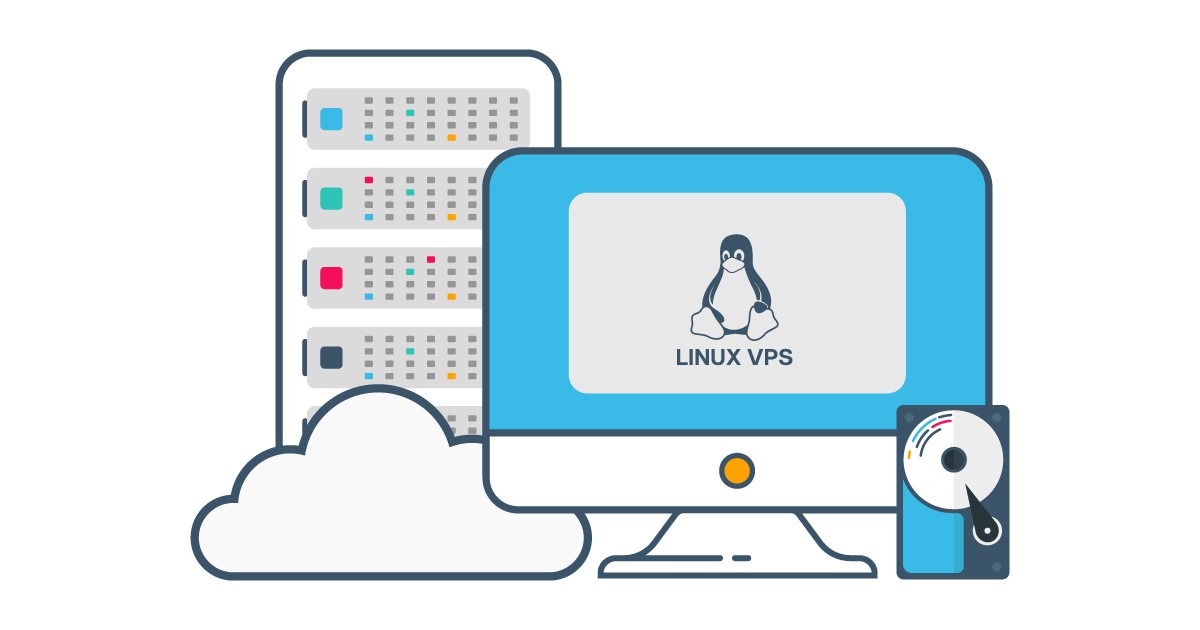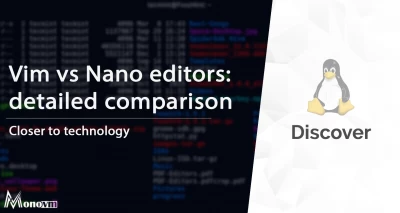Buy Linux VPS Server
🎉 With a Linux VPS hosting you can have your own dedicated online area without paying the huge expense of a physical server. Our cheap Linux VPS servers are built on the kvm and VMware ESXi platforms and powered by high-quality hardware. Enjoy complete root SSH access and seamless scalability. Our Linux VPS hosting offer:
- Fast speed: Our highest-ranking hardware, including super-fast SSD storage and strong processors, allows you to get your projects up and running quickly.
- Grow as you need: Don't worry about complex migrations! Our Linux VPS hosting allows you to simply expand your resources (such as CPU, RAM, and storage).
- Reliability: We provide strong facilities, backup systems, and a high uptime guarantee to ensure that your project remains online and works smoothly with few interruptions.
- Global reach: As our data centers located around the globe, you`ll enjoy fast and seamless performance from anywhere in the world.
- Select your OS: Choose from various Linux distributions (e.g., Ubuntu, CentOS, Debian, Rocky Linux, Fedora, Alma Linux) to suit your preferences and application requirements.
- Flexible Control Panels: Manage your hosting environment with ease, using free (e.g., Webmin, VestaCP) or paid (e.g., cPanel, Plesk) control panel options.
- Easy management: You can use a range of free and paid control panel options (including Webmin, VestaCP, cPanel, and Plesk.) to control your hosting environment easily.
💡 We understand you have options, but we believe our plans will be a good fit for you. We provide cloud Linux VPS hosting with a range of services that are both powerful and economical, tailored to your unique requirements. It's time to overcome your limitations and push your ideas to the next level! Take a look below to see our outstanding options tailored to your needs. 🏆
LINUX VPS PRICING & PLANS
Want to buy Linux VPS? We offer a variety of plans to fit your needs and budget. Just take a look and choose the perfect VPS from the selection below!
Linux 512 MB
$ 5.99
/MO (billed semiannually)CPU: 1 Core
RAM: 512 MB
STORAGE: 15 GB SSD
Traffic: Up to Unlimited
Port: Up to 10 Gbps
Get Started NowLinux 1024 MB
$12.99
Save 30%
$9.08
/MO *CPU: 1 Core
RAM: 1024 MB
STORAGE: 30 GB SSD
Traffic: Up to Unlimited
Port: Up to 10 Gbps
Get Started NowLinux 2048 MB
$19.99
Save 30%
$13.99
/MO *CPU: 1 Core
RAM: 2048 MB
STORAGE: 50 GB SSD
Traffic: Up to Unlimited
Port: Up to 10 Gbps
Get Started NowLinux 4096 MB
$29.99
Save 30%
$20.99
/MO *CPU: 2 Core
RAM: 4096 MB
STORAGE: 80 GB SSD
Traffic: Up to Unlimited
Port: Up to 10 Gbps
Get Started NowLinux 6144 MB
$49.99
Save 30%
$34.99
/MO *CPU: 4 Core
RAM: 6144 MB
STORAGE: 100 GB SSD
Traffic: Up to Unlimited
Port: Up to 10 Gbps
Get Started NowLinux 8192 MB
$64.99
Save 30%
$45.49
/MO *CPU: 4 Core
RAM: 8192 MB
STORAGE: 150 GB SSD
Traffic: Up to Unlimited
Port: Up to 10 Gbps
Get Started NowLINUX VIRTUAL PRIVATE SERVER FEATURES
Your success is our passion! That is why we provide high-quality Linux VPS hosting with the best features. Our features convinced you'll enjoy the smooth performance, strong tools, and dependable service.
Complete control with SSH access
SSH provides unlimited access to your Linux VPS, allowing you to install any applications or control panels that you want.
Easy management from our dashboard
Our web-based dashboard allows you to quickly manage your Linux virtual machine. Need to swap OS systems or reboot? Not a problem! You are only a few clicks away from making modifications to your virtual computer.
Instant Linux VPS setup
No more waiting! Your Linux VPS will be up and running in 10 seconds after your payment is confirmed.
Expert support at your fingertips
Are you struggling with a technical issue? Our IT professionals are available 24 hours a day, seven days a week. We take pleasure in delivering excellent support so you can focus on what is most important.
Linux VPS hardware details
Order Now
Best Linux VPS operating systems
When you choose one of our cheap Linux VPS hosting plans, you can pick the particular version of Linux on which your server will run. We have a number of popular distributions to pick from!

CentOS Operating System
CentOS, is a popular free and open-source Linux operating system that was recognized as the server industry's dependable workhorse. It is built on the same underpinnings as Red Hat Enterprise Linux (RHEL). While CentOS has recently reached the end of its life cycle, its legacy lives on through alternatives such as Rocky Linux and Alma Linux, ensuring a smooth transition for those who relied on its reliable service. Here is a list of the latest versions and their support details:
- CentOS Stream 9: Released about 1 year and 6 months ago (15 Sep 2021).
- CentOS Stream 8: Released 3 years and 6 months ago (24 Sep 2019).
- CentOS Linux 8: Released 3 years and 6 months ago (24 Sep 2019).
- CentOS Linux 7: Released 8 years ago (07 Jul 2014).
- Click on CentOS VPS to order order CentOS Linux VPS.
Click on CentOS VPS to order CentOS Linux VPS.

Linux VPS With Ubuntu
Ubuntu, which is built on the powerful foundation of Linux, has a pleasant interface, strong reliability, and a vast community ready to help. Whether you're an experienced techie or just getting started, there's a perfect fit for you. Ubuntu comes in a wide range of versions, including Kubuntu with its beautiful interface and Xubuntu, which is noted for its lightweight design. The latest Ubuntu versions are:
- Ubuntu 20.04 LTS (Focal Fossa): Released on April 23, 2020, with standard support until April 2025 and extended security maintenance until April 2030.
- Ubuntu 22.04 LTS (Jammy Jellyfish): Released on April 21, 2022, with standard support until April 2027 and extended security maintenance until April 2032.
- Ubuntu 22.10 (Kinetic Kudu): Released on October 20, 2022, with support until July 2023.
Click on Ubuntu VPS to order Ubuntu Linux VPS with MonoVM.

Linux VPS With Debian
Founded in 1993, this free and open-source operating system is known for its stability, making it ideal for keeping your servers and desktops running smoothly. Debian promotes open-source ideas and provides a huge library of applications for you to explore. No different if you're a developer or simply searching for a trustworthy system for your daily chores, Debian is an excellent choice. Here's a list of the recent and upcoming Debian releases:
- The next release of Debian is codenamed "bookworm" is testing.
- Debian 11 (bullseye) — current stable release.
- Debian 10 (buster) — current oldstable release.
- Debian 9 (stretch) — oldoldstable release, under LTS (Long Term Support) support.
- Debian 8 (jessie) — archived release, under extended LTS support.
Click on Debian VPS to order Debian Linux VPS.

Linux VPS With Fedora
Fedora is another free and open-source Linux project supported by Red Hat. It involves the most modern developments in open source, making it excellent for people who enjoy experimenting with modern technologies. Consider it a testing ground for the future of Red Hat Enterprise Linux (RHEL)! While updates are required more frequently (every 13 months, with new releases every 6 months), you need more frequent updates. Here's a list of the recent Fedora releases:
- Fedora 37: Released 4 months and 3 weeks ago (15 Nov 2022). Security support ends in 8 months (15 Dec 2023).
- Fedora 36: Released 11 months ago (10 May 2022). Security support ends in 1 month and 1 week (16 May 2023).
- Fedora 35: Released 1 year and 5 months ago (02 Nov 2021). Security support ended 3 months and 3 weeks ago (13 Dec 2022).

Linux VPS With AlmaLinux
Feeling lost since the end of CentOS? Have no fear, AlmaLinux is here! This free and open-source project is developed by CloudLinux, a well-known enterprise Linux vendor. It is a perfect 1:1 match with RHEL software, allowing you to move easily and without worry. AlmaLinux, offers stable performance and deep functionality, making it a great choice for people seeking for a dependable, community-driven RHEL alternative. Here's a list of the recent AlmaLinux releases and their details:
- AlmaLinux 9.1: Codename "Lime Lynx," General Availability Date 16 November 2022, Kernel 5.14.0-162.6.1.
- AlmaLinux 9.0: Codename "Emerald Puma," General Availability Date 26 May 2022, Kernel 5.14.0-70.13.1.
- AlmaLinux 8.7: Codename "Stone Smilodon," General Availability Date 10 November 2022, Kernel 4.18.0-425.3.1.
- AlmaLinux 8.6: Codename "Sky Tiger," General Availability Date 12 May 2022, Kernel 4.18.0-372.9.1.

Linux VPS With Rocky Linux
This distribution was also created as a response to the development of CentOS Linux. It was created by Gregory Kurtzer, CentOS's co-founder. Rocky Linux is a free, open-source platform that can replace CentOS while remaining compatible with Red Hat Enterprise Linux (RHEL). Rocky Linux is a stable, long-term solution for enterprises and people looking for a dependable Linux distribution. Here's a list of the recent Rocky Linux releases and their details:
- Rocky Linux 8: Codename "Green Obsidian," Release Date June 21, 2021, End of Life May 31, 2029.
- Rocky Linux 9: Codename "Blue Onyx," Release Date July 14, 2022, End of Life May 31, 2032.
Linux VPS Hosting FAQs
Here are the most common questions we get from our customers, Hence we elaborated our FAQ to ensure you find answers as quick as possible.
- Using a hosting control panel: On your Linux VPS, install popular control panel software such as cPanel, DirectAdmin, or Plesk. These panels simplify web hosting duties by providing a user-friendly interface for configuring hosting functions easily.
- Manual web server configuration: To host your website on a Linux VPS, configure a web server manually using Apache or Nginx. While this method provides more control and customization, it necessitates a higher level of technical proficiency.
- If you forget your password, log in to our client area and go to the VPS management control panel. Under the settings tab, you will be able to change the password of your VPS.
- Also, if you have a password and only want to change that, you can use this article.
Linux VPS Hosting Tutorials
Discover our Linux Knowledgebase, offering the latest tech updates, industry news, and in-depth tutorials. Stay ahead in the virtual private server realm and maximize your hosting experience.




![How to Undo and Redo in Vim/Vi editor? [VIM Redo & VIM Undo] How to Undo and Redo in Vim/Vi editor? [VIM Redo & VIM Undo]](/wp-content/uploads/2022/01/how-to-undo-and-redo-in-vim399-400xAuto.webp)